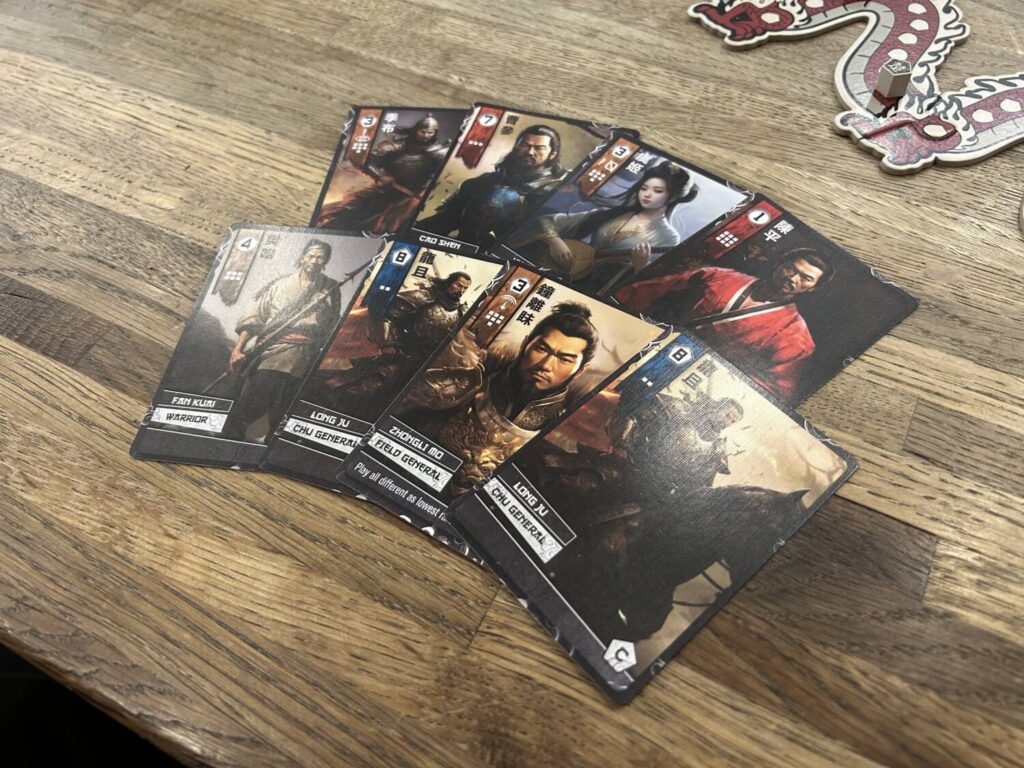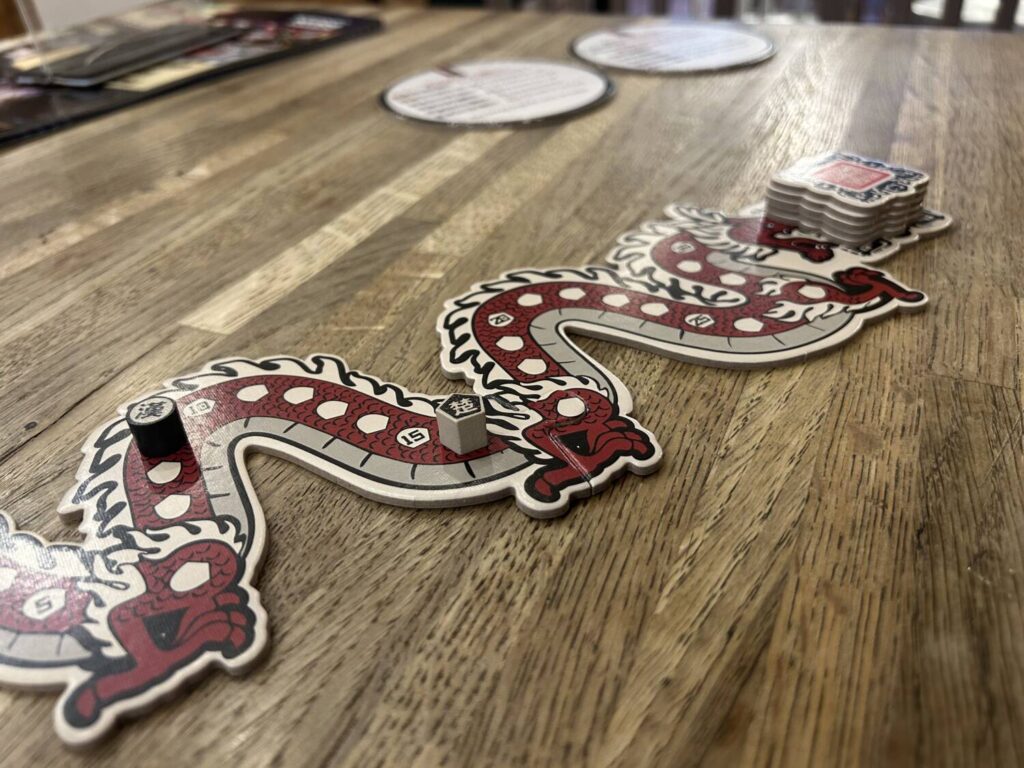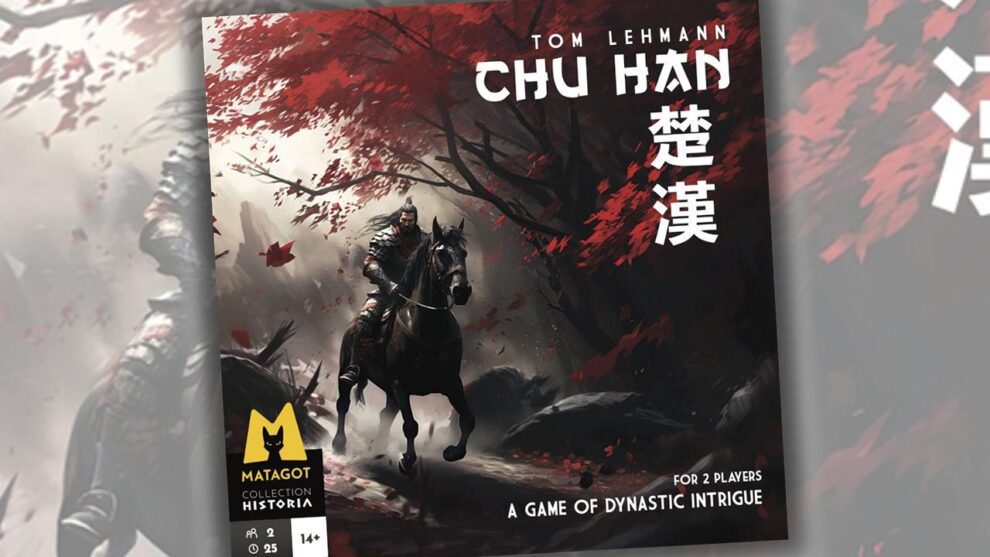Disclosure: Meeple Mountain received a free copy of this product in exchange for an honest, unbiased review. This review is not intended to be an endorsement.
I love shedding and trick-taking games because of the drama. It comes in stages. There’s the initial, private drama of looking at your hand, picturing the round ahead and how you have to play it. There’s the acute pin prick of each new trick and new card, the anticipation that condenses around the edges of the table as whoever leads throws down. Most delicious of all, those moments when you succeed in pulling off a daring maneuver, those moments when you are able to shake off misfortune before it has the chance to find you.
These games are fun, you know?
They rely to some extent on the chaos of a deck of cards, on the mathematics of distribution. As a result, shedding and trick-taking are notoriously tricky to translate into a two-player format. Sail and Fox in the Forest are basically evergreens at this point, but two-player trick-taking games are still rare. Two-player shedding games, Haggis aside, are almost non-existent. There’s a good reason for that: it’s hard to make shedding interesting when there are only two players. There’s always something of a novelty to even the idea of attempting one. That’s why I was so interested when Thomas Lehmann, designer of Race for the Galaxy and Dice Realms among many others, announced that he’d designed a two-person shedding game.
Chu Han, from publisher Matagot, is set during the Chu-Han Contention, a Chinese civil war that took place around 200 BCE. In the basic version of the game, players race to 31 points over the course of several hands. Your goal, as in most shedding games, is to empty your hand first. You do that by playing sets of cards into the middle of the table. The sets allowed in Chu Han are surprisingly straightforward: you can only play groups made up of a single number. I can play seven 1’s if I have them, but there are no flushes or straights. The first player out scores one point for each card their opponent has left.

The heavy restrictions on sets are balanced out by a wide variety of cards with special powers. Some have to be played as part of a larger set, while others can be played between tricks. Force discards, sub in a wild card, score points, you can do all this and more. My favorite is the card that allows you to skip your turn, forcing your opponent to follow their own set. Watching your opponent realize the nigh unbeatable set they just slapped down on the table is now their problem is good comedy.
The special cards are the meat of Chu Han. The most important part of each round is looking at your starting hand and taking stock of what powers you have or, perhaps more importantly, realizing what powers you don’t. The absence of a card in your hand does not mean your opponent definitely has it—like many two-player games, Chu Han skirts the trap of perfect information by having you deal out most rather than all of the deck—but the possibility that your opponent might have a particularly ruinous card dangles over the table like a guillotine.

Across multiple plays, I have come to appreciate the nuance of Lehmann’s work here. Keeping sets to groups of a single number helps eliminate the luck of the draw. It’s hard to get hosed coming out of the gate in Chu Han. The powers too are cleverly designed to make it feel more often than not like the outcome is a result of your choices rather than providence. There’s even a campaign mode, which introduces events and changes the cards available to each player, though it didn’t add much to the experience. For reasons that defy description, Chu Han never takes off. I can sit and play The Crew for hours, but I barely have enough interest in Chu Han to deal out another hand.
This is clearly the design of someone who knows what they’re doing. There’s no question that Chu Han works. Fundamentally, it’s a sound design. There are good sources of tension, there’s plenty of uncertainty, and there are ways to push your luck. There’s some part of me that rejects my verdict, that insists this has to be the best two-player shedding game I’ve ever played. That’s possible. It might be technically true. That doesn’t mean much, though. Chu Han fails the most important test: it never quite manages to be fun.












Add Comment